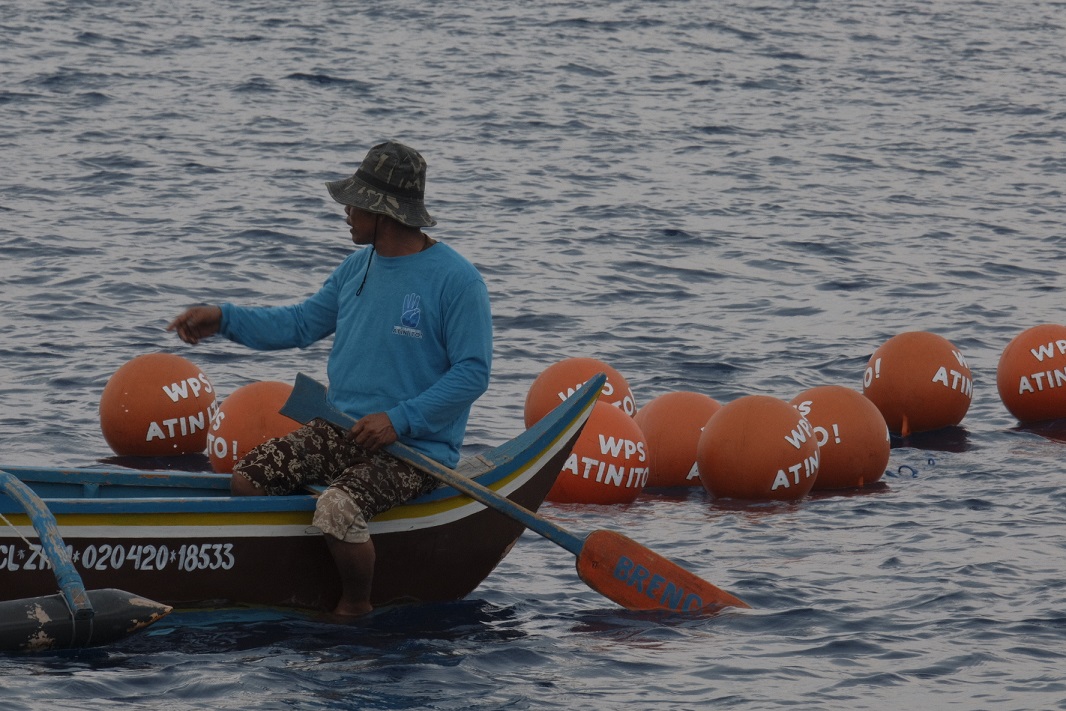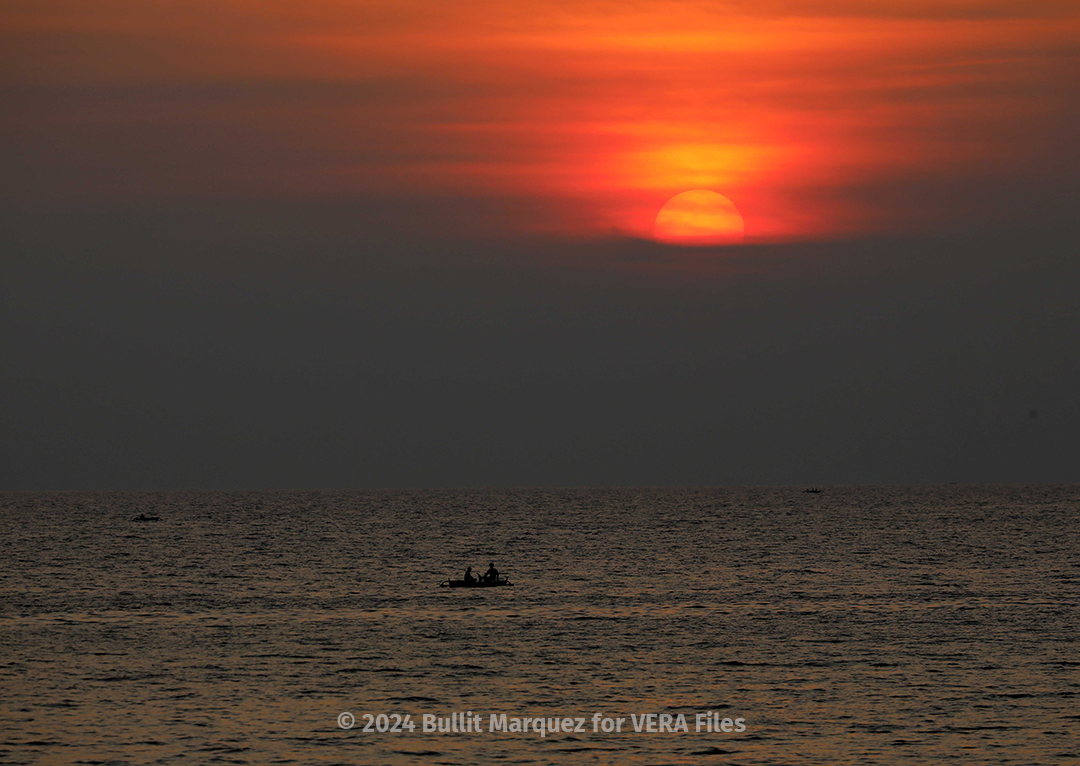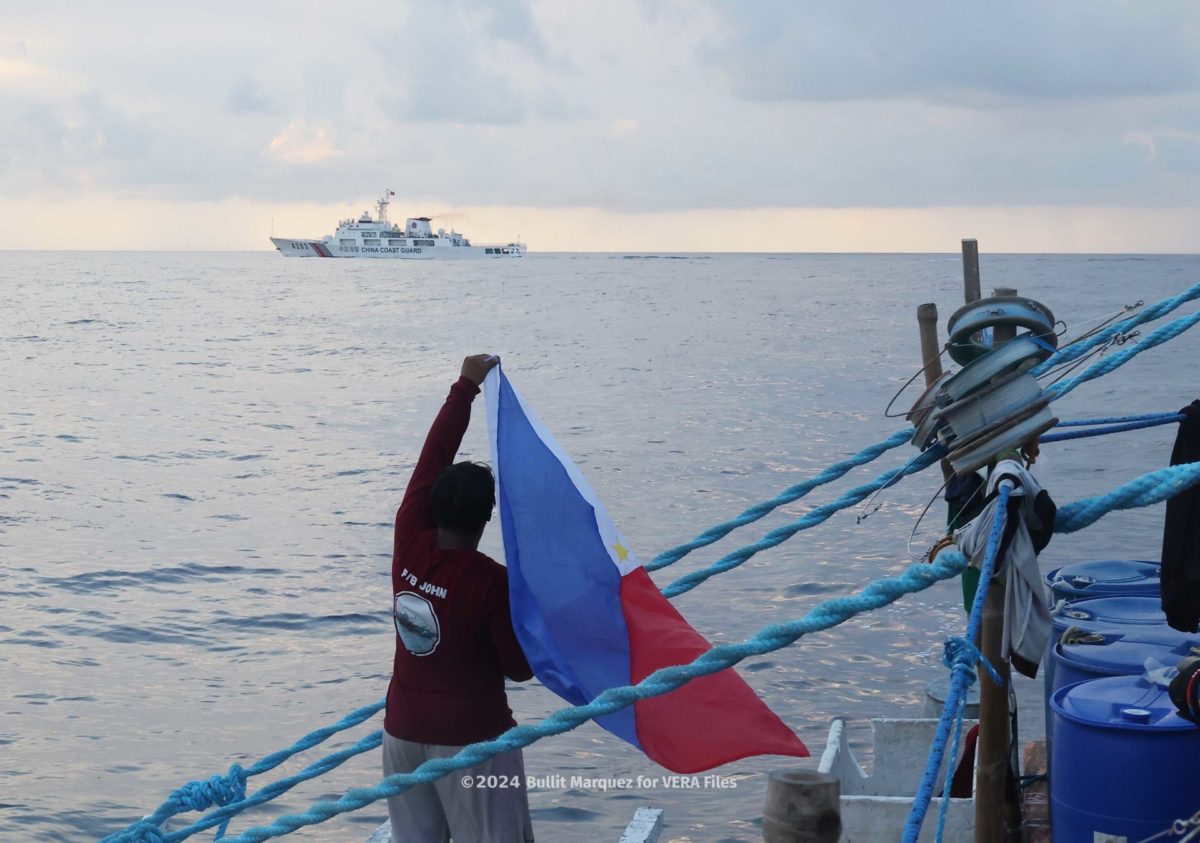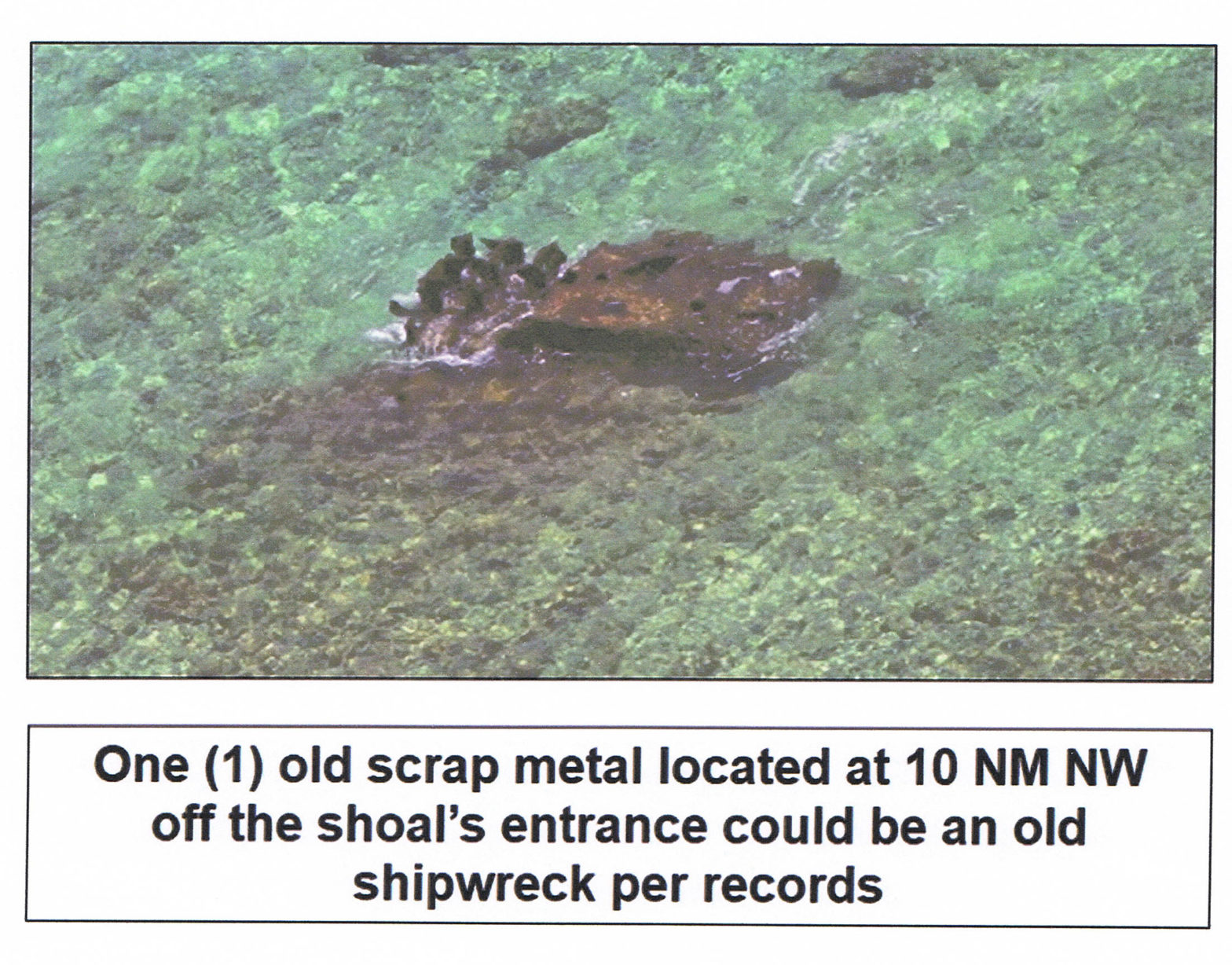The author’s post in LinkedIn:
There is only ONE word to describe what is in the mind of a major power that amasses a fleet of 44 military vessels to play goalkeeper in a small atoll against a squadron of wooden fishing boats manned by civilians- FEAR
In the morning of May 15, 2024, a squadron of fishing boats led by Ms Rafaela David of the Atin Ito Coalition sortied out from its staging points in Subic and Masinloc, towards the direction of Scarborough Shoal. Lying in wait around the shoal were three layers of more than 40 PLA Navy, Chinese Coast Guard, and militia vessels, deployed in a screen formation. Despite these challenges, by the mid-morning of May 16, 2024, Ms David has declared the supply mission a success. In the aftermath, China responded by announcing that it will henceforth be arresting “trespassers” in its claimed “maritime territories.” Given China’s decision to escalate, seemingly out of spite, it begs the question: was it worth it?
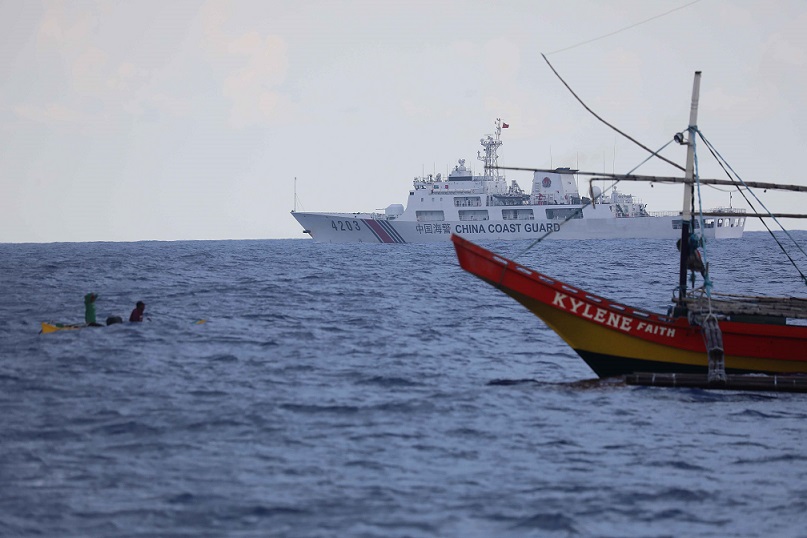
Early deployment of supply boat
Looking back, one can safely say that the “operational art” for the entire effort was simple, but sound. The coalition shaped the information space two months leading up to the D-Day; by using mainstream and social media to signal the broad strokes of its plan for a Scarborough foray. In the decisive phase, the scheme of maneuver’s main effort called for the early deployment of a supply boat from Subic. Departing on May 14, 2024 under the cover of darkness and under “radio silence,” it reached its rendezvous point by 11:30 PM about 25 to 30 nautical miles southeast off the shoal, thence started distributing its supplies to waiting fisherfolks at 5:00 AM the next day. The supporting effort, made up of a squadron of fishing boats, departed Masinloc in the early morning. Its journey, and its pre-planned activities, was a shout-out to the international and domestic audience that the West Philippine Sea belongs to the Filipino people. But more importantly, it has successfully distracted Beijing’s eyes away from the main effort – the supply boat.
The tactical execution generally went according to plan. As the mission commander, Ms David ensured that the convoy’s milestones were achieved. At no point was the overwhelming presence of a Chinese maritime force posed as an obstacle to mission success. The formlessness of the entire maneuver has left the Chinese ships circling around aimlessly trying to figure out what was the coalition’s intent. There were casualties; on the materiel side, a drone and Ms David’s mobile phone were lost at sea. Among the participants, bouts with sea sickness and a mild case of heat stroke, otherwise the convoy completed the entire maneuver unscathed.
As to the issue of the decisive point, friends and foes alike presumed that the inner waters of the shoal was the coalition’s ultimate objective. Beijing certainly believed it, which explains the deployment of a 40ship armada of Chinese vessels it has thrown to defend the shoal against Ms David’s squadron of wooden fishing boats. But this was not the case. The Atin Ito coalition is a people’s movement, whose journey to sea was an effort to reach out to the “hearts and minds” of the Filipino people, hoping to inspire in them a renewed sense of citizenship, and a rediscovery of values shared by an imperfect, yet resilient democracy. It is also a spirited effort to “civilianize” our exclusive economic zone and counter China’s “militarization” of our waters and the isles and features within it. By “civilianizing” our waters, we reclaim agency, restore order, and allow Filipinos to enjoy the benefits of its marine resources in accordance with international law.
Which brings us back to the question posed earlier – was it worth it? To answer it may require an introspection into one’s own “theory of victory.” J. Boone Bartholomees, in his paper entitled “Theory of Victory,” has a rather blunt summation: “victory is about breaking will… and determining how one actually breaks an adversary’s will.” On the other hand, Brad Roberts, in his paper entitled “Commentary: On The Need For A Blue Theory Of Victory” posits that China’s “red theory of victory” is premised on exploiting divisions among its adversaries, and on persuading them to give up its own interests to avoid escalation. Robert’s view certainly resonates with our own experience against Chinese malign influence in our society and domestic politics; and its coast guard’s coercive tactics in the Scarborough and Second Thomas Shoals.
Filipino’s theory of victory
Amidst all these, the challenge is developing the consensus to define the “Filipino’s theory of victory.” Perhaps we can draw inspiration from the lessons learned from the “UK vs Iceland Cod War,” which spanned from the 1960s to the 1970s – in which the Icelanders won, despite a dominant Royal Navy, through sheer national will. In our case, perhaps the “Filipino’s theory of victory” should be predicated on building that national will across our society. This is a tough undertaking, but may be Ms David’s world view can offer a way ahead; paraphrasing her: “Peace is a constant struggle…through peaceful resistance we will use tools and play by rules, which are foreign to our [Chinese] oppressors that primarily uses might and deception.”
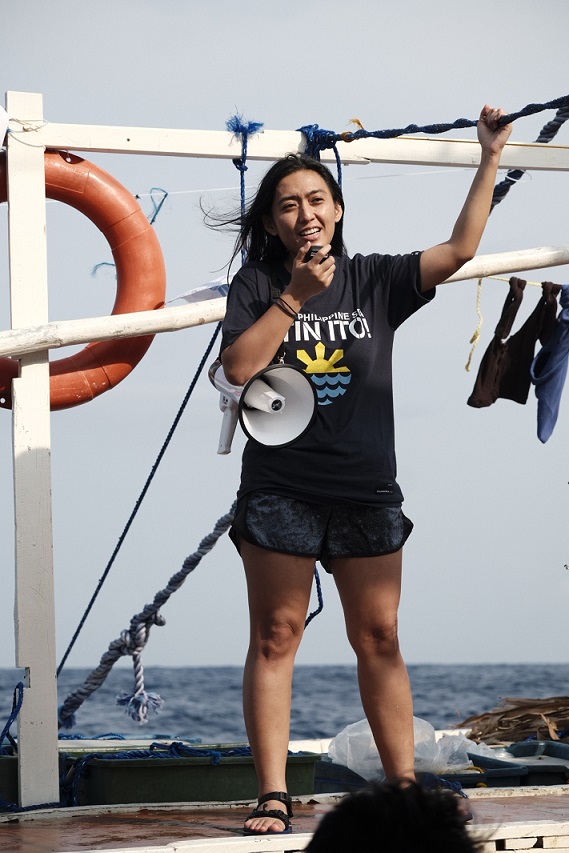
But beyond theories, the country needs more Rafaela David’s for our future leaders, who can lead from the front, understand the sentiments of the grassroots, inspire respect with a mixed group of stakeholders, and take calculated risks. More so, it needs Filipino citizens like the boat captains that sortied out to Scarborough Shoal, who show determination despite adversity, and understands the stakes involved, and act on willingly not for themselves but for their families and community.
*Rear Admiral Rommel Jude Ong (Ret.) is currently Professor of Praxis at Ateneo School of Government. An experienced naval officer specializing in strategic planning, operations, intelligence, and naval diplomacy, his last posting was as Vice Commander of the Philippine Navy until his compulsory retirement in September 2019.
